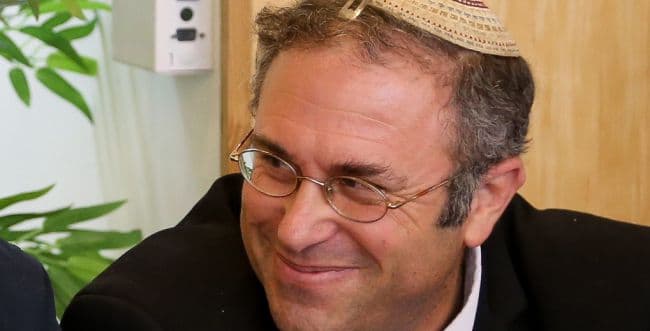Rabbi Thau's Case
Rabbi Thau's case: Rabbi Teharlev's conclusion from the meeting with the complainants
Rabbi Ohad Teharlev met with the complainants against Rabbi Zvi Thau and published his findings from the meeting: "Who, if not us, will bring their cry to the city square?"


The head of the Midreshet Lindenbaum in Jerusalem, Rabbi Ohad Teharlev, met with the complainants against Rabbi Zvi Thau and published a lengthy letter in which he outlines his conclusions from the meeting.
The full letter of Rabbi Ohad Teharlev
Ten days ago, I was invited to a meeting with the women who claim that Rabbi Thau harmed them. Despite the very busy days and the tight schedule, I felt that it was my duty to come and listen.
On one hand, for a long time now, I have been hearing disturbing stories, and on the other hand, I have always emphasized, and this is how I educate my children and my students, to be very cautious in respecting scholars, and especially in respecting rabbis of whom we have a disagreement with. But the resonating verse (in the Book of Devarim 22:27)
"כי בַשָּׂדֶה מְצָאָהּ צָעֲקָה הַנַּעֲרָה המְאֹורָשָׂה וְאֵין מוֹשִׁיעַ לָהּ"
"For she was found in the field, the young woman who was betrothed, and she cried out, but there was no one to save her" - I could not remain indifferent and ignore the cry, a cry that has no one to hear and therefore no one to save.
The resounding cry in the field in the deep sense of the word. Whether it's a field that is empty of people or a communicative field, or a period like in the field - no matter how much the victim screams, it will be impossible to hear her amidst the background noise, amidst the silencers and dismissers, and amidst the chaos around. I decided that I must come and listen.
I sat and listened. My eyes filled with tears as I heard about the pain and the injuries. A complainant, and another. And another. A complainant that his parents had hospitalized him, and one that was accused of being crazy. I remembered Hannah, standing in the Tabernacle in the holy place where the Ark of the Covenant was located, 'only her lips moved, but her voice was not heard.' Eli, the High Priest, who was the highest religious authority at that time, thought she was drunk.
I thought about the senior and important rabbis of our generation who do not hear the cries of the victims. About the voices that claim that she who complains is crazy, and he who complains is delusional. I felt that the words of truth were evident. Truth has its own power; the heart feels that these victims are crying out from the depths of their hearts, and it seems that there are those who constantly work to ensure that their voices are not heard.
We, rabbis, educators, and community leaders, must listen and be a voice for these victims. Who if not us will bring their cry to the public square? Who if not us must be alarmed and help ensure that their cry is heard by those who need to hear it? It is our duty to ensure that the society in which we live listens attentively to those who claim to have been harmed, and it is the duty of the legal authorities to conduct investigations and inquiries to uncover the truth.
In a place where there is a desecration of the name of God, we do not give honor to a rabbi." What desecration of the name of God is there in attempting to silence the cry of the victims. When I left the meeting, I discussed with one of the respected rabbis, and together we debated whether it would help to bring these matters to light. After all, we are marked by the group that protects those who are accused of causing harm.
We are considered liberal rabbis and educators. There will always be suspicions that we have an interest, that we are writing "from a position," especially at a time when major protests are taking place in the city square, one event following another, and who will even read what we write.
Today, I understand that these reflections - the fear and reluctance to express these thoughts loudly - are part of the field where the girl's cry is not heard. We must shout the cry of the victims. We will cry out, and we will cry out again and again, hoping that in the end, the cry of the victims will be heard and enter the hearts of those who need to hear it.
And may every victim know that we are willing to listen and believe their cry. If we remain silent, how can we stand before the Creator on Yom Kippur?
קוֹלִי שָׁמָעְתָּ אַל תַּעְלֵם אָזְנְךָ לְרַוְחָתִי לְשַׁוְעָתִי (איכה ג', נ"ו)
"You have heard my voice, do not hide Your ear to my sighing and cry." (Eicha 3:56)
Stay Connected With Us
Follow our social channels for breaking news, exclusive content, and real-time updates.
WhatsApp Updates
Join our news group for instant updates
Follow on X (Twitter)
@jfeedenglish
Never miss a story - follow us on your preferred platform!